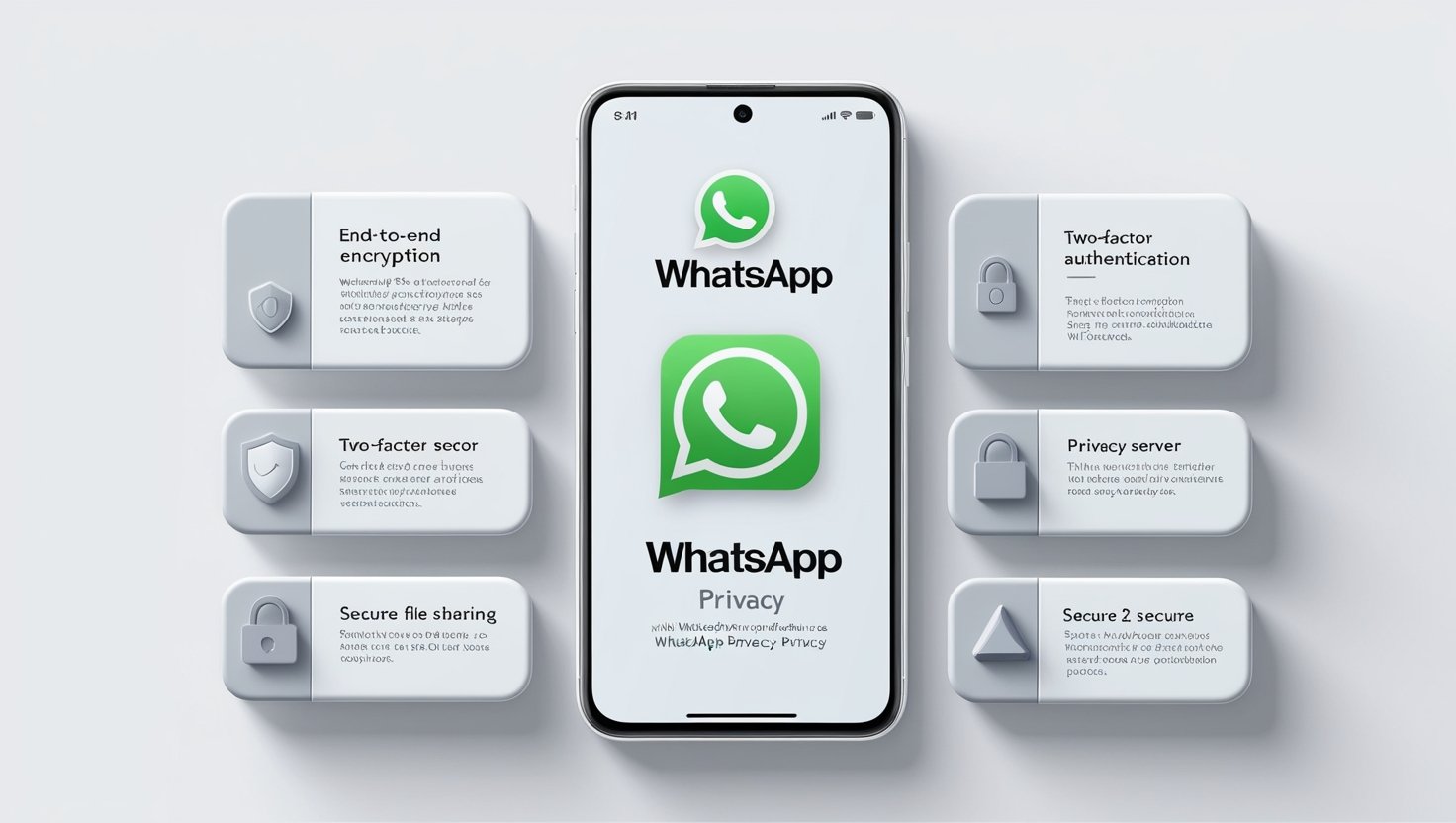As communication continues to transition to the web and more away from in-person communication, messaging applications have become vital for both communication at work and at home. WhatsApp is arguably the most notable of these apps, with over 2 billion users in the world. However, such an appeal makes it imperative to address concerns over abuse, specifically criminal activities, as well as privacy, and security. This essay considers the case of WhatsApp safety concerns on understanding its encryption methods, privacy policies, security risks, and the parent company Meta (formerly Facebook) in its markets.
End-to-End Encryption: The Two sides of the Coin
Turnkey solutions offered by Vas’s company contribute successfully to the development of mobile applications and play an important role in today’s business. There is physical protection that ensures encryption of the message at the sender’s end and encryption of the message at the recipient’s end; this is what is termed as the end–to–end encryption E2EE. Since they argue that even WhatsApp cannot read the communications themselves that is issued credibility.
But even as E2EE goes a long way in enhancing the security measures E2EE also faces opposition. The dissent suggests that whilst it is important from a user point of view, E2E encryption barriers state agencies and other professionals who are in the frontlines against surveillance and illegal activities. In such situations, where there is evidence of terrorism or the sexual abuse of children, the absence of such communication is almost prohibitive in itself. As a result, a few nations support backdoors- an intentional weakness that lets law enforcement agencies in charge of tackling cyber crimes .
Data Collection and Privacy Policies
WhatsApp has always maintained a robust encryption of information, however, this did not prevent its privacy policies from becoming a subject of ridicule. In early 2021, the controversy surfaced when the app modified its terms of service leading to mass protest and migration of users to FOMA. The changes were meant to bring WhatsApp further in the fold of Meta, the parent company of Facebook and Instagram. It was understood that a policy shift would also mean user data would be used by Meta to enhance advertising effectiveness and analytics, even when messages would be end-to-end encrypted.
This raised panic for data privacy. Many users expressed misunderstanding as to how their exposed data including phone numbers and contact lists would or could be used or sold. In addition, they pointed out that even though the message itself is encrypted the cover who-communicates-with-whom-when-how-often is not. This cover can be very damaging and pose privacy risks to the users.
Vulnerabilities and Security Breaches

Nevertheless, as strong as the encryption may be, it cannot be said of WhatsApp that it has no vulnerabilities. With the passing of the years, various notable occurrences of breach of security have raised eyebrows regarding the safety of the app. For instance, in the year 2019, there was a vulnerability that permitted hacking of the spyware to users through a missed call on WhatsApp.
The growth of cyber crimes also implies that any attempts to secure information cannot be effective. Phishing or manipulation of users is one of the practices that is associated with WhatsApp. This often results in account hacking and would capture sensitive information, at times against the will of users. Although certain systems like the two-step verification have been introduced by WhatsApp, every user should always beware not to fall for these traps
The Role of Meta: Trust Issues
The fact that Meta owns WhatsApp further complicates the security and privacy factors of the application. Lands in controversies such as the Cambridge Analytica standpoint of misusing data, brought a lot of trouble for Meta. This incident led to destruction of deep trust amongst the users who would otherwise have used the app and hence would not have faith that privacy on WhatsApp is respected.
1616459596624-al-jazira-146852-notre-characters-3138.8816726820082.88167282;3.8816726810093;5.45492851018351856856997029118-500×655-287839935041805739-542540576640488192-7 Of note is the fact that there are growing concerns of cross-platform data integration since WhatsApp will be used in conjunction with other applications provided by Meta. Every single user would not be comfortable if the data obtained via WhatsApp would be put to use for advancing the advertisement practices directed by the users of Meta. Most of the former, and far-sighted developed, questions still continue to stay without proper answers and explanation regarding the data usage policy, what kind of data is being collected and why.
Strategies for Effective Use of WhatsApp
It is true that users often have issues regarding the security and privacy of WhatsApp. However, this should not prohibit users from improving their security on the platform. This heading will highlight several best practices such as:
Use Two-step Verification
This is an important feature that enhances the security around the use of WhatsApp because an extra PIN is required when one is registering a phone number on the app.
Avoid Clicking on Untrustworthy Links or Attachments
Such links or downloads can spread viruses or hacking attempts to users.
Update The App Regularly
Updating the app makes sure that you use the most recent features and security updates that have been provided.
Change the Privacy Resources
Change privacy options so they would determine who may view your profile picture, status or last seen time. This at least minimizes overexposure.
Limit the amount of Information Shared Within Group Chats
Group chats give the opportunity to share and communicate with unknown persons, which may be highly exposing. Therefore sensitive information may be shared with these people inappropriately.
Stay Educated
Be on the lookout for security risks or scams against users of WhatsApp.
The Outlook of Messaging Apps

The debate when it comes to the safety of WhatsApp today is not simply a dispute about the application. It also represents the dilemma of the contemporary era: how safe are our online conversations? And like in any age of chaos – encryption.
Furthermore, following the principles of self-sovereignty, new communication channels may pose a threat to messaging services such as WhatsApp. Such channels allow users to have full control of their information, thus providing an escape from systems that are prone to information capitalism.
Conclusion
To sum up, while providing assurance of using end-to-end encryption technology as well as allowing millions around the world to use the application, the WhatsApp’s management as well the abdication would call for some fundamental changes. The big tech fascination with the longtime conspiracy theory of Mondragón and other emergencies would require great restraint on the user’s part.
In the end, the answer to the question of whether or not WhatsApp should be considered “safe” comes from the actions of the user himself and how he uses or protects his privacy and security on the specific service. Learning how to incorporate best practices within communication enhances choices making as well as risk mitigation. This will not be the end of the debate over privacy and security in communication technologies , as we know that the technologies are ever evolving and so will the debate.





